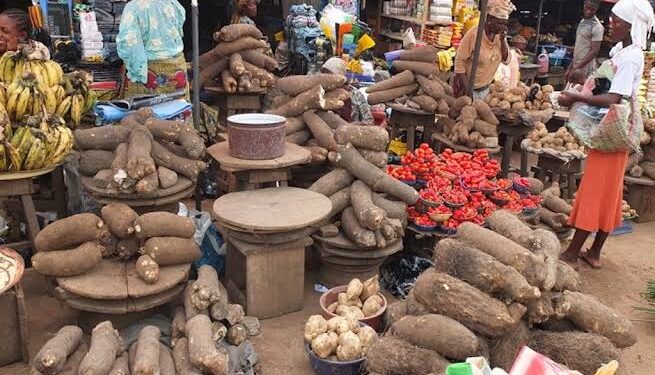The November inflation rate showed an increase of 0.72% points compared to the October 2024 inflation rate, according to NBS’s latest Consumer Price Index (CPI) report which measures the rate of change in prices of goods and services.
“On a year-on-year basis, the Headline inflation rate was 6.40% points higher than the rate recorded in November 2023 (28.20%). This shows that the Headline inflation rate (year-on-year basis) increased in November 2024 compared to the same month in the preceding year (i.e., November 2023),” the Bureau said.
Significantly, food inflation rate in November 2024 was 39.93% on a year-on-year basis, 7.08% points higher than the rate recorded in November 2023 (32.84%).
On a month-on-month basis, the food inflation rate in November 2024 was 2.98% which shows 0.05% points increase compared to the rate recorded in October 2024 (2.94%).
The rise in food inflation is attributed to the rate of increase in the average prices of mudfish, catfish dried, dried fish sadine, rice, yam flour, millet whole grain, corn flour, agric egg, powered milk, fresh milk, dried beef, goat meat, frozen chicken, among others.
Food and commodity inflation have skyrocketed as Nigerians battle what can pass for the worst cost of living crisis since the country’s independence over six decades ago.
Bretton Woods institutions like the World Bank and the International Monetary Fund had advocated the removal of energy subsidies and the floating of the naira, saying failure to effect the two economic policies has plunged Nigeria into severe inflationary pressures.
After his inauguration in May 2023, President Bola Tinubu removed petrol subsidy and floated the naira. Petrol prices more than quadrupled, soaring from less than N200 per litre to over N1,100 in many parts of the country. The naira also took a nosedive, wobbling from around N700/$ to N1,600.











